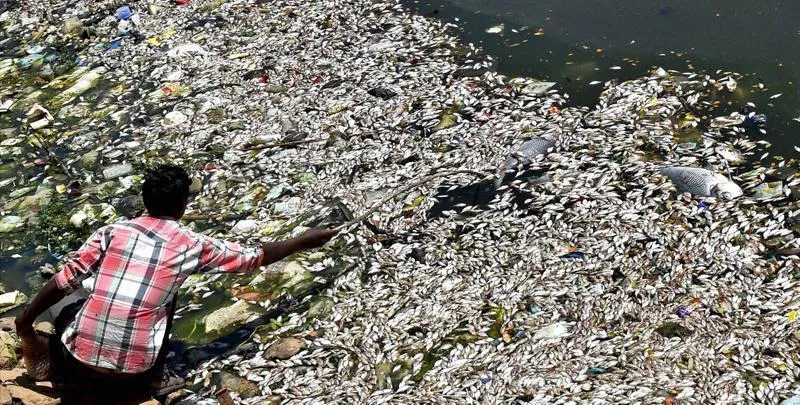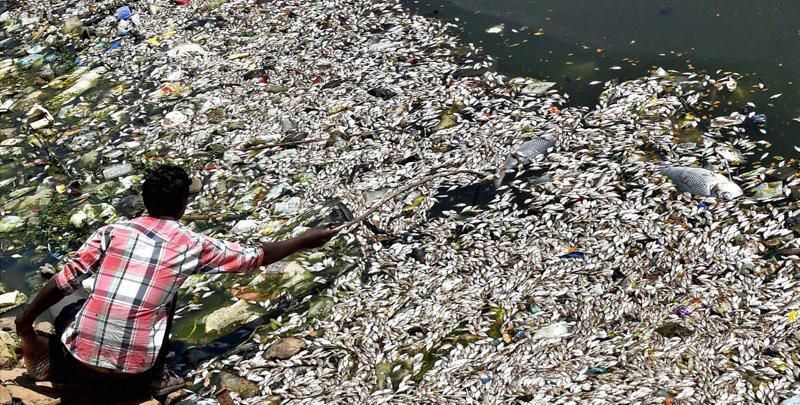Central govt will give Rs 665 crore to help clean Bengaluru lakes
There is good news for the residents and lakes of Bengaluru. To clean up Bengaluru’s lakes, the Centre will provide Rs 665 crore for establishing a 74 km long trunk sewage line and four sewage treatment plants.

In a report by Deccan Herald, Environment Minister Prakash Javadekar said, “While Rs 500 crore would be spent on setting up a 74 km trunk sewage line to carry the waste, Rs 165 crore would be spent on establishing four sewage treatment plants at Bellandur lake, which was so polluted that it caught fire.” The minister met officials from Karnataka on Tuesday to discuss the pollution abatement schemes and plans another meeting with Chief Minister Siddaramaiah next month to finalise the roadmap.
This is part of a Rs 800 crore package being given to Bengaluru under the Atal Mission for Urban Rejuvenation and Transformation (Amrut) programme initiated by the Urban Development Ministry. About 90% of the funds under Amrut is meant for improving water supply and sewerage infrastructure, creation of storm water drains, green space and parks in the city and for promoting non-motorised urban transport.
The Environment Minister said out of 587 sewage treatment plants in Bengaluru, 137 are closed and the rest don’t work to their full capacity. “Bengaluru generates 1,280 million litres per day of sewage. The city has a capacity of 721 MLD but in reality only 600 MLD of sewage is being treated. Its an issue,” he added.
The waste treatment situation has improved to some extent in the last five years as a 2011 report by the Comptroller and Auditor General suggested that Bengaluru treated only 10% of its daily sewage and releases the remaining critically polluted water as it is into nearby lakes and streams, which in turn joins Pennar and Cauvery rivers downstream.
According to Karnataka State Pollution Control Board records, there were 262 major water bodies in Bengaluru, but the numbers came down to 81 by 2008. Out of these 81 water bodies, only 34 were recognised as live lakes. Satellite data collected by civic agencies showed several lakes are in various stages of decay.
Speaking to CNN News18, a Whitefield Rising activist Elangovan welcomed the central government’s move and stressed on several other measures to revive the dying lakes. “Right technology should be used for the sewage treatment plants. The present technology can’t treat some nitrates and phosphates present as pollutants. Further, the aid sanctioned is not enough to address the concern of industrial effluents which remains a major source of pollution,” he said.
To stay updated with more positive news, please connect with us on Facebook and Twitter.






